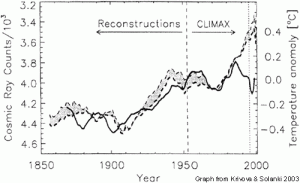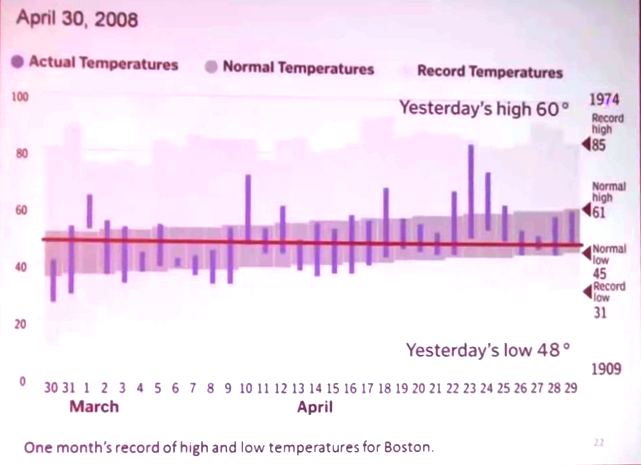Following my series on Understanding the global temperature. I have realised that it is likely that a substantial part of recent warming – particularly northern hemisphere land-based temperatures have risen due to air plane contrails.
Thus for forecast I made a while back: My Global Temperature Forecast: cooling ~0.35C by 2030 years would need to be revised upward. Also having examined temperature records, I think the effect of the Atlantic oscillation is smaller than I suggested.
This is a “finger in the air” forecast because much of what I’m using is very poorly understood so use it at your own risk.
Direct CO2 warming is probably of the order of 0.05C/decade. The contrail warming is hard to quantify as it is so regional, but globally met balloons show a ground based trend of around 0.13/decade. The northern extra tropical regions is warming at 0.2C/decade faster than the southern area. If we assume this is due to contrail formation, this suggests very roughly around 0.1C/decade global warming due to increased air traffic and contrail formation.
Temperature rise from 1970-2000 as measured by HADCRUT was around 0.48C or 0.16C/decade. Meteorologically balloons indicate slightly lower warming globally of 0.14/decade since 1970.
We now have the following that suggest change:
- Rising CO2 – causing perhaps 0.05C decade
- Rising Contrails – which measured globally is of the order of 0.1C/decade
- Possible negative phase of Atlantic Multidecadal Oscillation which at most is suggested at 0.1C cooling. But a lower figure is more likely (0.05C?)
- Reduced solar activity. If contrails account for significant warming since 1970, then I estimate about 0.1C/decade cooling. (I’m using the suggested discrepancy from the graph below and suggesting half is caused by contrails). The forecast of this is difficult as who knows whether solar activity will remain low.
 Forecast
Forecast
Based on this, my best estimate of global temperature change is from no change to perhaps 0.1C warming in the next decade. However, there is significant natural variation of around 0.8C so the forecast would need to be 0.1 ±0.8C in the next decade.
Based on what I know of climate, and the likelihood of negative feedbacks, I would suggest a best long term estimate of perhaps 0.8 warming by 2100. Again there is significant natural variation of around 0.5C & I have no real idea of the scale of negative feedback so my best forecast would be something like 0.8±1C
This figure however relies on continued increase in contrails and no diminishing impact as the skies are filled with them. If however we find a way to reduce contrails, that figure will be substantially lower, but if the rate of filling the skies with contrails increases it could be higher.
In Perspective
To put this forecast in perspective here is a plot of daily temperatures in Boston. The day to day temperatures change considerably. Over the month the mean temperature also changes significantly. The total change due to global warming is entirely contained within the red line.


